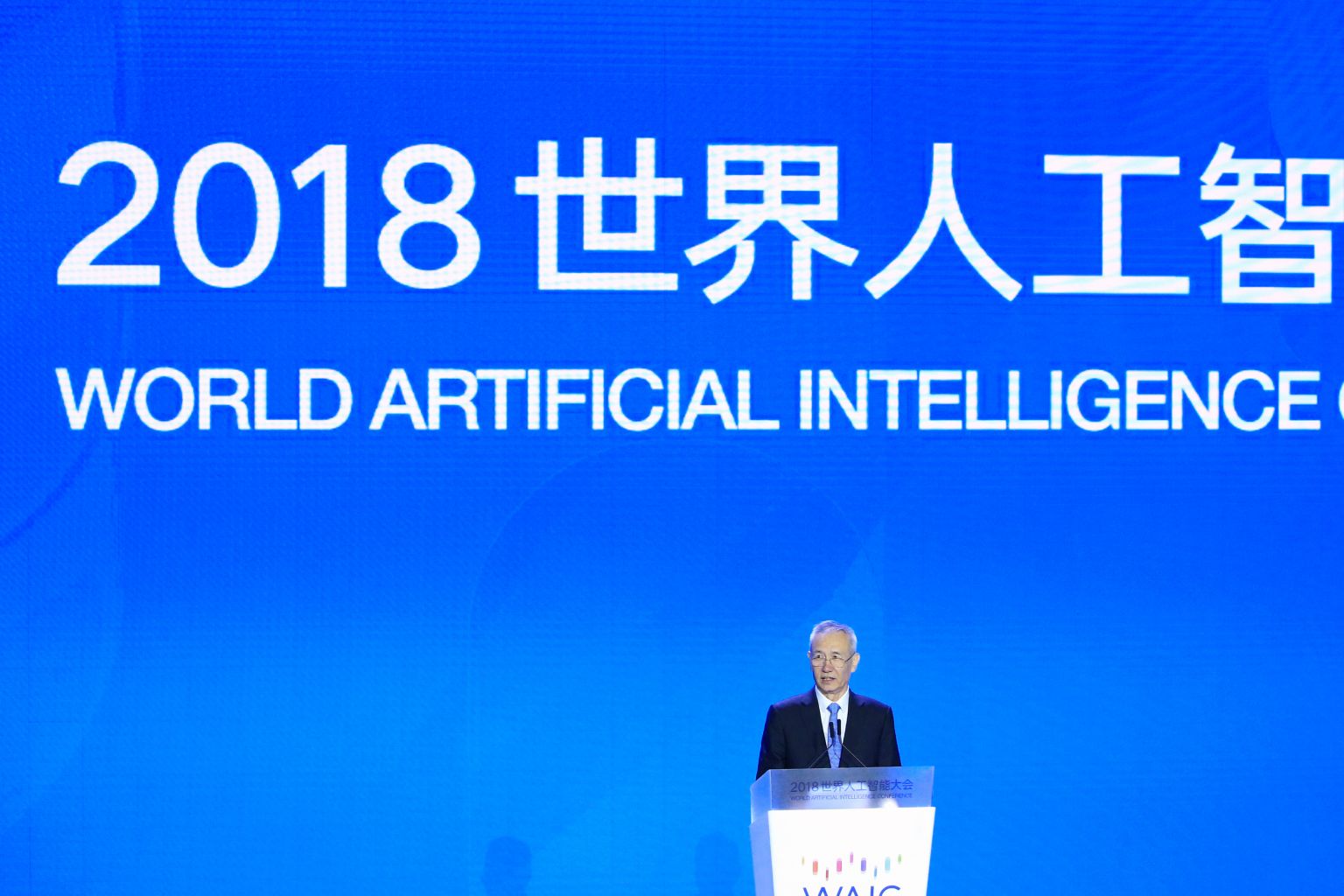China wants to work with other countries to develop AI
Sign up now: Get insights on Asia's fast-moving developments

Chinese Vice Premier Liu He speaks at the opening ceremony of the World Artificial Intelligence Conference in Shanghai, on Sept 17, 2018.
PHOTO: REUTERS
SHANGHAI - China is promoting artificial intelligence (AI) in an open environment and it seeks to work with other countries to develop the field, Chinese Vice-Premier Liu He told tech honchos in Shanghai on Monday (Sept 17).
It supports Chinese firms and research institutes to cooperate widely with their foreign counterparts and also welcomes countries to invest in China to tap its vast market of 1.4 billion people.
Mr Liu, who is also the Chinese point man for trade talks with the United States, said China wants to work with all countries "to cope with the double-edged sword brought by new technologies", especially in security, ethical and legal issues.
He was speaking at the opening of the 2018 World Artificial Intelligence Conference, a three-day event to showcase China's rapid progress in developing AI.
Last year, the Chinese government announced detailed plans to become a world leader in AI and machine learning by 2030. It aims to create an industry worth one trillion yuan (S$200 billion) across areas such as autonomous driving, smart city solutions, medical diagnosis, as well as voice and facial recognition.
The high-profile conference saw the attendance of Chinese tech giant founders including Alibaba chairman Jack Ma, Tencent chief executive Pony Ma and Baidu chief executive Robin Li, as well as senior executives from American tech powerhouses such as Microsoft, Google and Amazon.
Mr Liu said: "While China has made some achievements in the development of AI, we are clearly aware that there remains a gap in our overall standards compared with advanced levels."
China will "significantly increase" investment in basic research, he said. At the same time, he also pledged more government efforts to protect intellectual property rights.
"Small and medium-sized private enterprises play a big role in the AI sector. We should continue to improve the business environment to support their growth," he added.
Mr Liu's call for more international cooperation was echoed by some tech leaders who spoke at the event.
Tencent's chief executive said the Internet industries in the US and China have always been highly complementary, and it is also true in the field of AI.
Likening the rivalry between the two countries to a competition in the Olympics, Mr Ma said: "By chasing each other, you encourage each other to innovate and jointly push the cognitive limit… the ultimate goal is to improve the quality of life."
He noted that a new global supply chain is forming around the field of AI - from research to applications, and from software to hardware to services. This requires global collaboration to achieve the optimal configuration.
"The powerful advanced technology of the United States and the wide range of application scenarios in China are naturally complementary for a long time to come," he told the audience.
To further promote international cooperation in AI, especially in nurturing young talents and deepening top-class research, Professor Tang Xiao'ou, founder of up-and-coming AI firm SenseTime, mooted the idea of a global AI academic alliance.
Formally launched on Monday, the alliance brings together 15 universities. They include top Chinese schools such as Tsinghua University, Fudan University and Zhejiang University, as well as Nanyang Technological University from Singapore and Massachusetts Institute of Technology from the US.
"We believe the Pacific Ocean is big enough to accommodate the AI from both China and the US," Prof Tang said.


